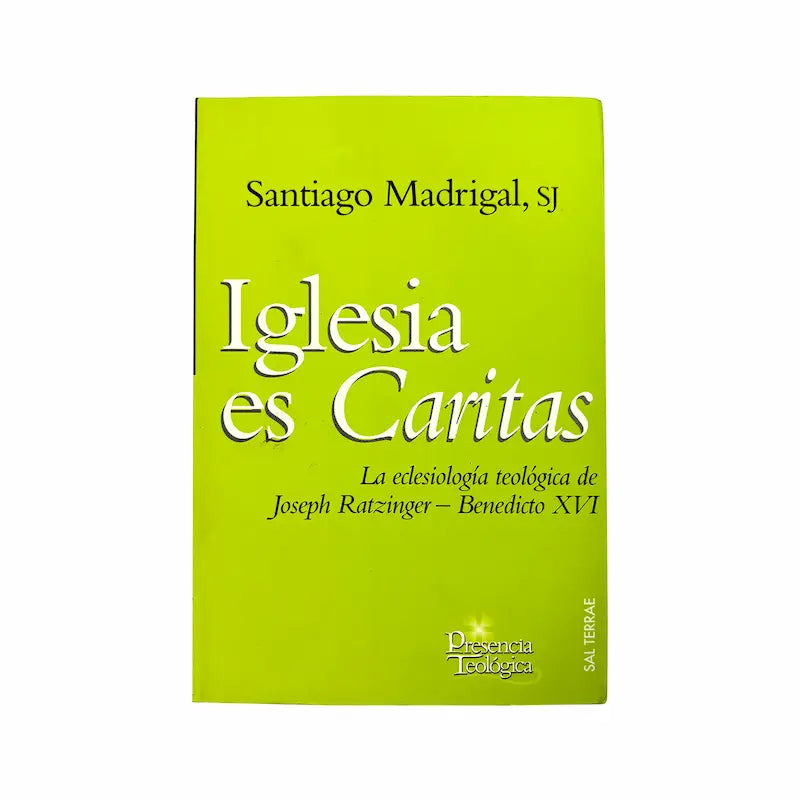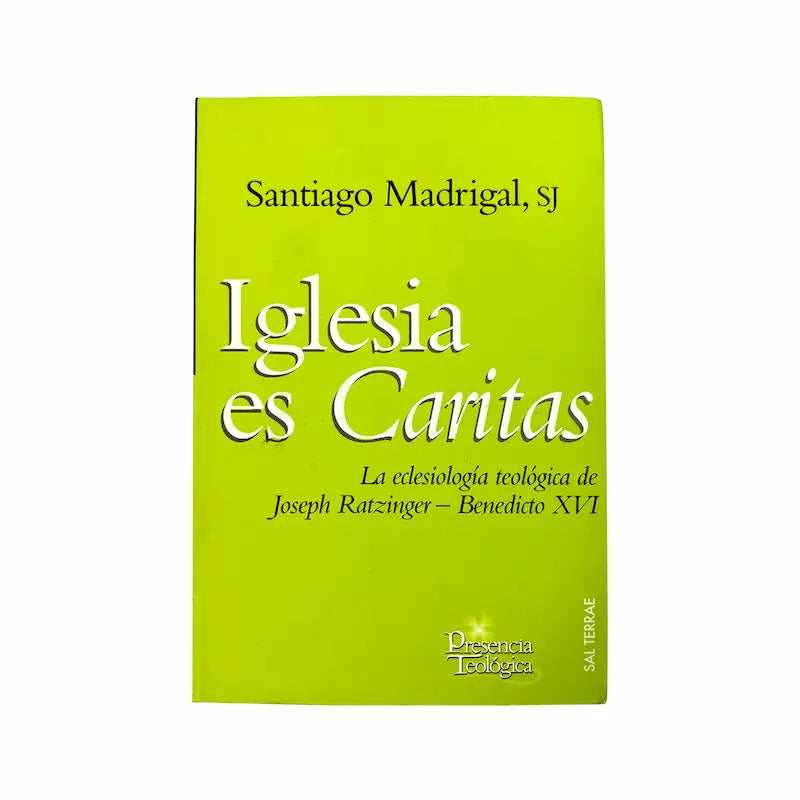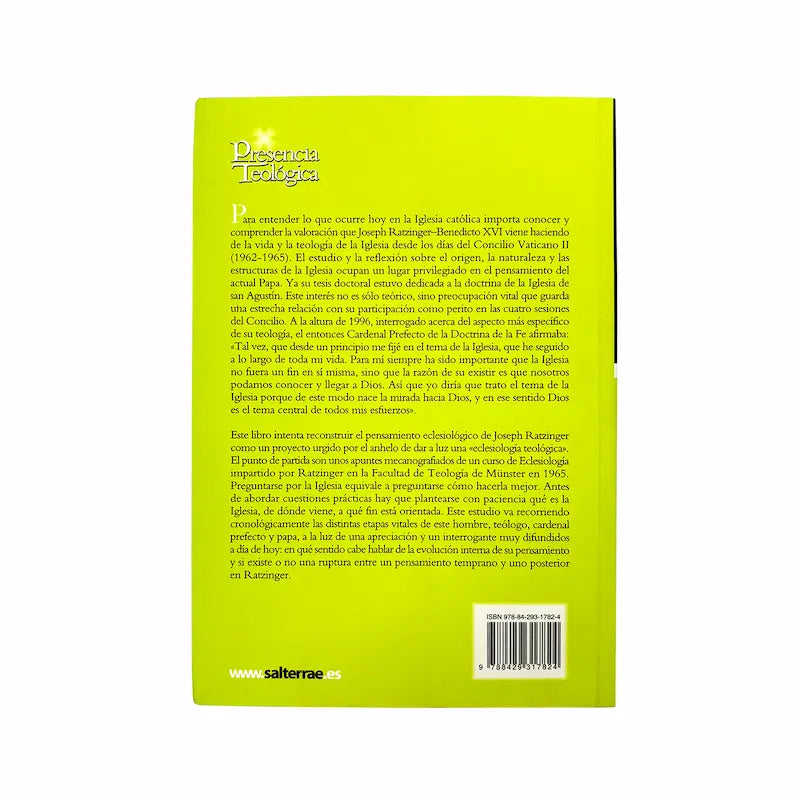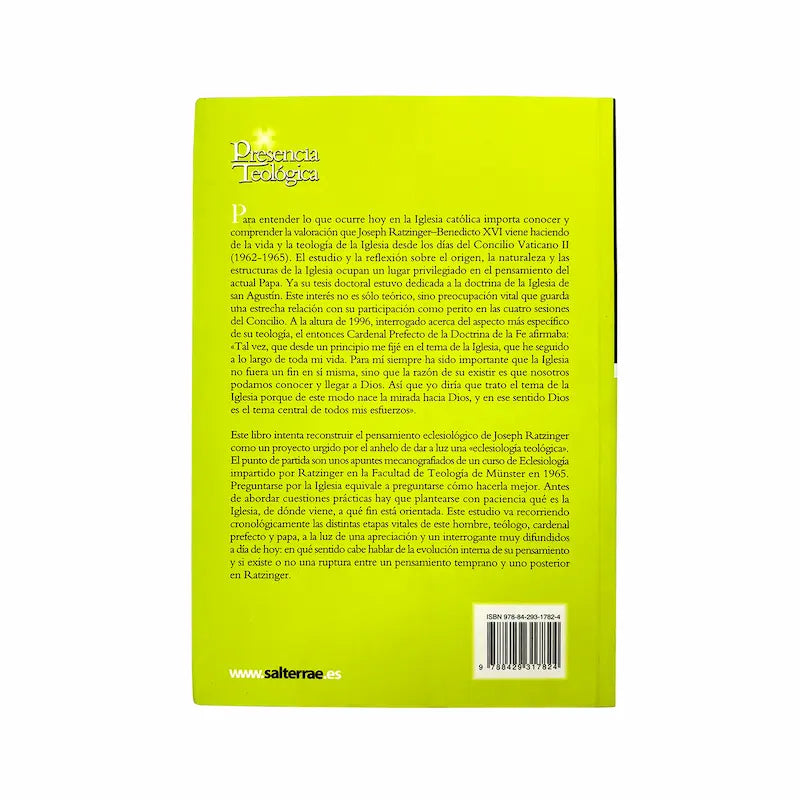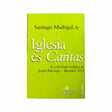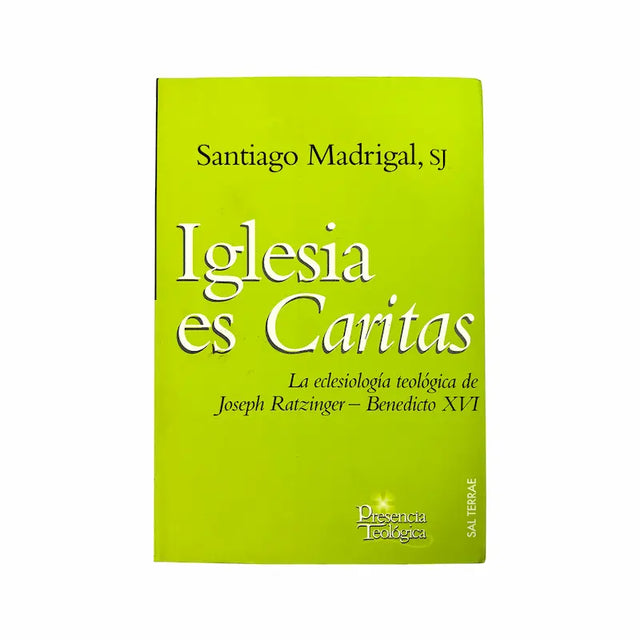Church is Caritas
Church is Caritas is backordered and will ship as soon as it is back in stock.
¡Listo para despacho desde nuestra bodega en Bogotá!
¡Envíos a todo el país, latinoamérica y Estados Unidos!
Size
Size
21.3 x 14.5 cm
Cap type
Cap type
Soft
Delivery and shipping
Delivery and shipping
Shipping to all of Colombia and the world.
Weight in grams:
Description
Description
The Theological Ecclesiology of Joseph Ratzinger-Benedict XVI - To understand what is happening in the Catholic Church today, it is important to know and understand Joseph Ratzinger's assessment of the life and theology of the Church since the days of the Second Vatican Council (1962-1965). The study and reflection on the origin, nature, and structures of the Church occupy a privileged place in the current Pope's thought. His doctoral thesis was already dedicated to the doctrine of the Church of Saint Augustine. This interest is not only theoretical, but a vital concern closely related to his participation as an expert in the four sessions of the Council. In 1996, when questioned about the most specific aspect of his theology, the then Cardinal Prefect of the Doctrine of the Faith stated: "Perhaps from the beginning I focused on the theme of the Church, which I have followed throughout my life. For me, it has always been important that the Church not be an end in itself, but that the reason for its existence is so that we can know and reach God. So I would say that I address the theme of the Church because in this way the gaze toward God is born, and in that sense, God is the central theme of all my efforts. This book attempts to reconstruct the ecclesiological thought of Joseph Ratzinger as a project prompted by the desire to give birth to a "theological ecclesiology." The starting point is typed notes from a course on Ecclesiology taught by Ratzinger at the Faculty of Theology in Münster in 1965. To ask about the Church is to ask how to make it better. Before addressing practical questions, one must patiently consider what the Church is, where it comes from, and what end it is oriented toward. This study chronologically covers the different stages of the life of this man, theologian, cardinal prefect and pope, in light of a widely held assessment and question today: in what sense can we speak of the internal evolution of his thought and whether or not there is a break between Ratzinger's early and later thought. SANTIAGO MADRIGAL (1960), a Jesuit, is Professor of Ecclesiology and Dean of the Faculty of Theology at Comillas University (Madrid). Since his doctoral thesis, dedicated to the study of the origins of the theological treatise on the Church in the 15th century, he has published several monographs (La eclesiología de Juan de Ragusa, 1995; El proyecto ecclesiológico de Juan de Segovia, 2000). In this new book he continues other works on the ecclesiology of Vatican II and its protagonists (Vatican II: Remembrance and Update, 2002; Memory of the Council: Ten Recollections of Vatican II, 2005; Karl Rahner and Joseph Ratzinger: In the Footsteps of the Council, 2006).
Author
Author
Santiago Madrigal
Digital version
Digital version
510
Payment and security
Payment methods:
Your payment information is processed securely. We do not store credit card data nor do we have access to your credit card information.
Approximate delivery time
- Major cities: 3 business days.
- Intermediate cities: 5 business days (cities and towns requiring reshipment: 8 business days)
- International shipping: 8 business days.
- Business days are Monday through Friday. Purchases made after 12:00 p.m. are shipped the following business day.

